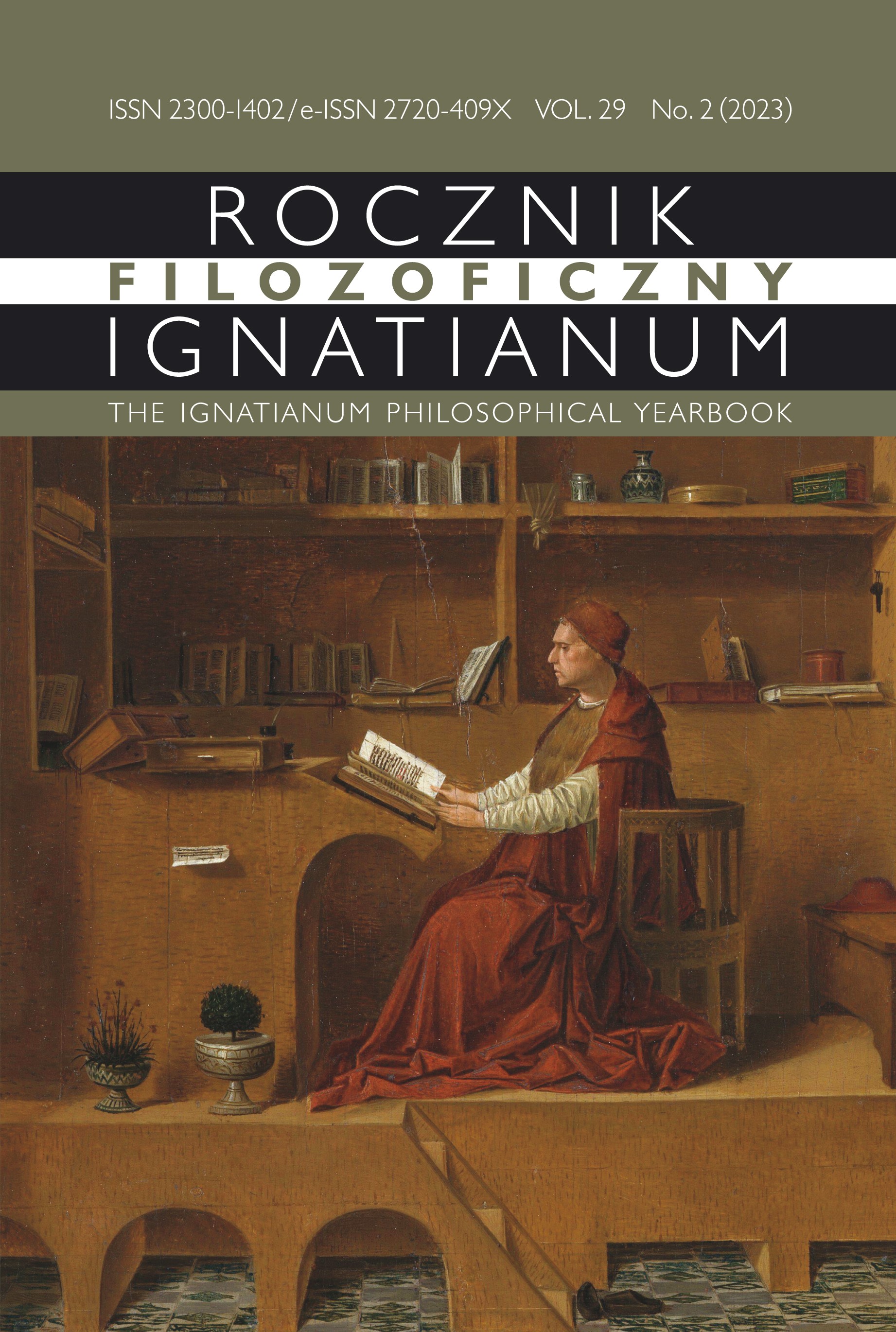Introduction
Abstrakt
The current issue of the journal includes eleven articles. It opens with an argument by Jerzy Brzozowski on the question of the theoretical and practical legitimacy of the use of modern, and, in fact, colloquial language in the translation of the Holy Scriptures. Referring to the example of the Paulian Bible, which was intended to be characterized by language understandable to the modern reader, the author notes that only ostensibly “modern language” was used. Moreover, full phrases from the Millennium Bible were borrowed in many places. Then follows a discussion by Nicholas Coureas based on Venetian and Genoese notarial deeds drawn up in Cyprus between 1362 and 1458, on the relationships between household slaves or servants and their owners. It turns out that they were very often supported by wills containing bequests for the benefit of slave women and illegitimate children born of these relationships.
Copyright (c) 2023 Akademia Ignatianum w Krakowie

Utwór dostępny jest na licencji Creative Commons Uznanie autorstwa – Bez utworów zależnych 4.0 Międzynarodowe.
Rocznik przyjmuje do druku wyłącznie materiały, które nie wchodzą w żaden konflikt interesów, żaden konflikt z prawem autorskim itp. Redakcja prowadzi działania przeciw: plagiatom, ghostwriting1, guest/honorary authorship2 itp. Autor pracy zbiorowej, który jest pierwszy na liście, bierze na siebie odpowiedzialność i ma obowiązek przedstawić wkład wszystkich współautorów. Jeśli publikacja powstała dzięki dedykowanym środkom finansowym, należy ujawnić to np. w Podziękowaniu, przypisie itp. Ew. przedruki wymagają jawnego zgłoszenia i okazania odpowiedniego pozwolenia wydawniczego. Autorzy / Recenzenci nierzetelni narażają się na reakcję właściwą stosownym instytucjom.
______
1 Ma to miejsce, gdy osoba mająca istotny wkład jest pominięta na liście Autorów czy w Podziękowaniu.
2 Zachodzi, gdy na liście autorskiej pojawia się osoba mająca znikomy/żaden udział w pracy.





